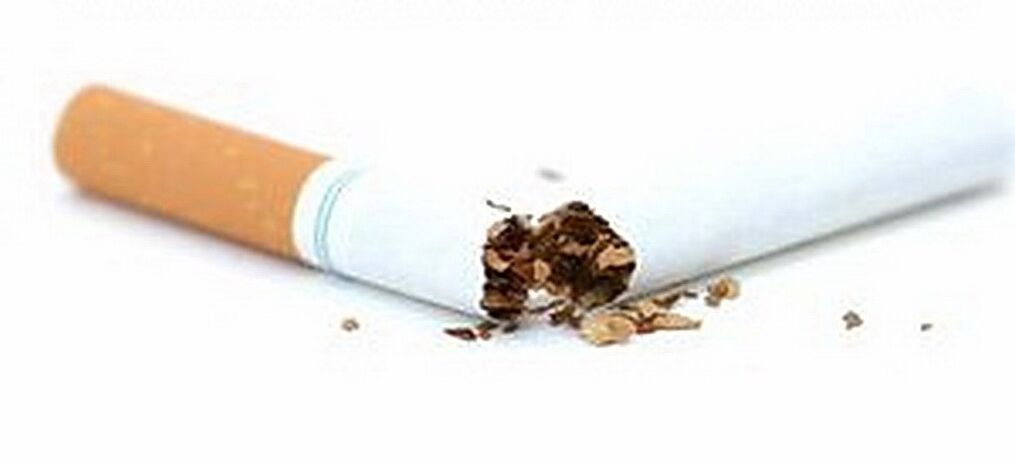After suffering from tuberculosis, many people know that in order to be cured, they must completely quit smoking, because smoking destroys the protective mechanisms of the bronchopulmonary system.But not everyone successfully quits smoking, as health worsens and coughing worsens in the first few days after quitting.

Many people expect that the body will immediately be on the path to improved health.But this is a mistake: after years of regular exposure to nicotine, the body becomes accustomed to it and demands that it return to its normal state.In fact, smoking even causes changes in the body at a molecular level.Genes responsible for cell division may be damaged.Therefore, smokers have an increased risk of developing cancer.
After quitting smoking, a person faces a period of physical restructuring.It may be unpleasant, but you'll feel better quickly after it's over.The following positive changes are observed in the cardiovascular system: blood vessels regain their elasticity, the flow of oxygen to the heart increases, and the heart begins to work better.The transmission of impulses in the nervous system is improved, irritability is reduced, and tremors in the limbs cease.
The function of the bronchial tubes recovers rather slowly and does not completely return to a healthy state.Even years after a person quits smoking, the risk of cancer remains, but is significantly lower than for smokers.
When you quit smoking, you may experience unpleasant feelings that are not just depression related to quitting smoking.During the first few days without smoking, you may develop small sores or stomatitis on your lips and oral mucosa.Colds, coughs, runny noses or sore throats, and conjunctivitis may occur.All of these symptoms occur because the body has not had enough time to rebuild and the immune system is in a depressed state.This can lead to a cold, but your health will start to improve after 2-3 weeks.
During the first week after quitting smoking, the body actively eliminates nicotine, which can lead to nicotine hunger.The regeneration process begins in the mucosa of the bronchi and intestines and becomes more active over time.As you cough, mucus may begin to drain from the lungs.The blood supply to the blood vessels of the brain and other organs is improved.Constipation may occur due to weakened intestinal tone.Increased blood pressure may occur.
By the end of the first week, stomach function returns to normal.If lesions and ulcers are observed on the tongue, a healing process will occur.The skin may become flaky due to dryness.It is believed that physical dependence on tobacco will disappear by the end of the first week, but psychological dependence may remain.People in the first week of quitting smoking describe their physical state as "out of balance."Appetite increases and all tastes for food become more acute; a person often becomes "addicted" to sweets.
For someone who quit smoking a week ago, this is an incredibly stressful time.This condition affects sleep, increases sweating, and the person becomes nervous and irritable.It may seem like you shouldn't quit smoking, but by the end of the week, these thoughts will appear less and less frequently.At this time, willpower and belief are very important.
After a month, the body begins to renew itself on a cellular level.Visible improvement in appearance - face looks healthier.Dry skin disappears and vascular tone returns to the proper level.But lung function is still recovering.
Five months later from the moment you quit smoking, liver cells begin to recover and the blood is completely renewed.The cough rarely bothers me anymore.As sleep and appetite return to normal, weight normalizes.There is a sense of strength and desire to play sports.
By examining your lifestyle and diet, you can make it easier to quit smoking.There should be enough fresh fruits, vegetables and dairy products on the menu.Take frequent walks in the fresh air and go to bed on time.
After quitting smoking:
The first changes will begin within 20 minutes - improved blood circulation and increased sensitivity in the fingers and toes.
After 8 hours, the amount of carbon monoxide in the blood decreases.This means the oxygen levels in your blood return to normal.
Two days after quitting smoking, nicotine is completely eliminated from the body.You can finally say goodbye to those tiny crystals that encourage you to smoke.Unfortunately, once nicotine completely leaves the body, the craving for cigarettes increases to a maximum.
Two days after quitting smoking, your taste buds begin to function normally.Not only will you get a better grasp of flavor nuances, but you'll also start adding fewer spices to your usual meals.
After two days, you'll start to smell better.Now, the idea of stopping and smelling the roses may seem more appealing to you.
After three days, the ciliated epithelium of the lungs recovered.Smoking destroys the tiny cilia that clean the airways.Fortunately, these eyelashes can regrow.
Blood pressure begins to fall after one week, reducing the risk of stroke, cardiovascular disease, heart failure, kidney failure and angina.
The cough starts to go away after two weeks of quitting smoking.It doesn't go away immediately because your lungs need time to clear out the harmful substances that have accumulated in them.
After two weeks, blood circulation will be restored, which will immediately have a positive impact on sexual function: the quality of male erections will improve, and female sensitivity will increase.
Three months after quitting smoking, my skin tone became even.Nicotine blocks blood flow to the upper layers of the skin, causing pale, dry skin and causing flaking.Nicotine also stimulates the appearance of wrinkles because it blocks collagen production.
If you haven't smoked a cigarette in a year, the most obvious signs of smoking will disappear.The tobacco color will disappear from your fingers and the plaque on your teeth will become pale.After a cleaning at the dentist, your teeth will stop turning yellow and the blood circulation in your gums will return to normal.
Five years after quitting smoking, stroke risk indicators returned to normal, and fifteen years later, former smokers had the same risk of cancer as nonsmokers.























